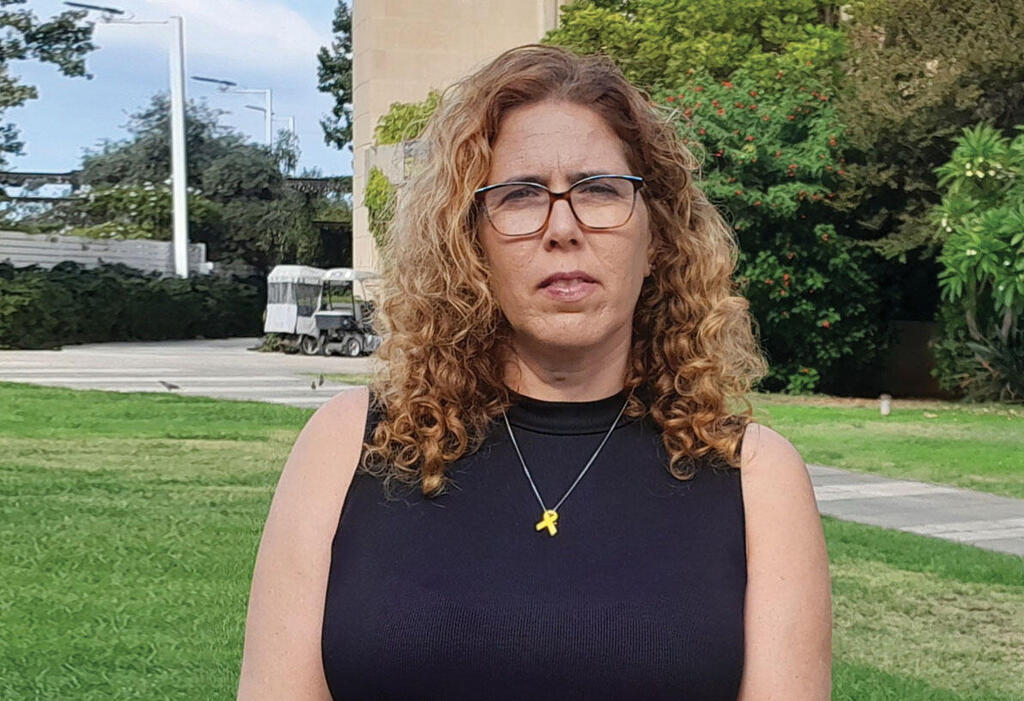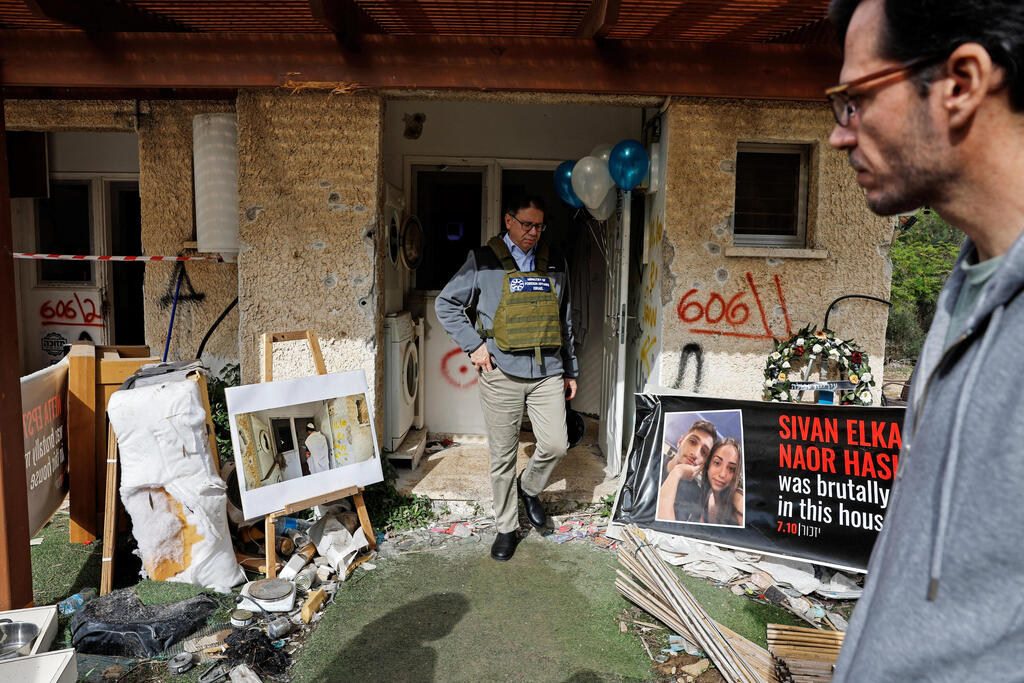Getting your Trinity Audio player ready...
Shattered Paradise isn't the first film by director Ronit Ifergan about life in Kfar Aza. After October 7, the community, along with the kibbutz itself, was evacuated to the Shefayim Hotel and will soon move to temporary housing in Kibbutz Ruhama.
"In 2009, I began filming Life on the Border, intending to tell the story of people like me who move to live on the border. How do you acclimate to it, and can you truly adapt and plant roots? After Operation Protective Edge, I realized I had more to say beyond how unfortunate we are."
"There is a new narrative here, the possibility to unite and declare that we don't want any more wars. My friends and I founded The Movement for the Future of the Western Negev. We protested at intersections because we felt the residents of the communities surrounding the Gaza Strip were invisible. The film Shattered Paradise, which I've been working on for a decade, was supposed to be about hope, about a social movement changing reality, unwilling to normalize rocket fire, and seeking a permanent solution."
Why did you stop protesting?
"Because not everyone joined us. We were the outliers. I feel most residents of the area accepted reality as it was. My husband, for example, said, 'We live on the border, the State of Israel protects us, there are soldiers, so sometimes we suffer from rocket fire. It's all fine. We're the buffer.'"
In Shattered Paradise, there's a moment where you break down in tears. What happened there?
"I experienced a sort of anxiety attack. We were getting ready to leave for my parents' home in central Israel, and suddenly my daughter shouted from afar that there was a shooting in the center, and my husband said, 'I want to stay in the kibbutz.' The fact that my husband and children weren't afraid frustrated me because I didn't believe the safe rooms could protect us."
But could you imagine thousands of terrorists invading?
"There's a scene in the film where I'm talking to a friend on the phone while watching a massive protest of Gazans at the border, and I say to her, 'What do they think? That they'll really manage to conquer us? Maybe two or three will get in.' I believed they could breach the fence, but I didn't want to believe they would overwhelm us. Otherwise, I would have fled."
Where were you on October 7?
"In the safe room with my family. Terrorists didn't try to enter our home. To people from central Israel who wrote to me asking how they could help, I asked them to pray for us. I didn't ask for the army to be sent because I understood only a miracle would get us out of this. Those moments in the safe room in the early hours, when I'm whispering with a radio station, were also filmed for the movie. We constantly heard Arabic outside. It's surreal they didn't come in. According to soldier's body cam footage, there were battles right next to us all the time."
The film ends with your evacuation from the kibbutz.
"The moment we stepped out of the house after hours in the safe room, I picked up my phone camera and said, 'Look how my film about hope ends. Here's the grim end to my hope.' We walked out to bodies lying on the ground and passed through people's homes, truly a death march. Today when I hear Hatikvah (Israel's national anthem, Hebrew for "hope"), I cry. The word hope sounds like an illusion to me."
You're experiencing an ideological crisis.
"I have a huge fracture over the optimism we once had. I thought we could make peace with our enemies, but the hatred is deeply ingrained in them, and it will take generations of re-education for peace to come. My husband and I learned Arabic, and I had a friend in Gaza whom I loved very much. She texted me on October 8 asking if I was okay. Since then, she fled Gaza after being beaten for opposing Hamas. A month ago, I joined a Zoom call where she shared what was happening there, I started crying and closed the call. My heart can't open right now to the pain of the other side. I also can't bear to hear Arabic."
Will you continue making films?
"Of course. Over the past year, I've documented my community's move from hotels to temporary housing, sad memorial ceremonies, the return of hostages and those who have not yet returned. The next film will be a farewell song, but I still don't know what I'm saying goodbye to."
Dozens of attendees at the Nova Festival hide under the stage
Get the Ynetnews app on your smartphone:







